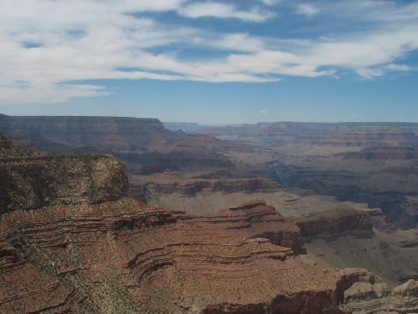Ever watched the weather report and wondered what it would be like to be a meteorologist? Here’s a fun way to learn about the weather and give being a weather scientist a try. Do some research, learn how to read a weather map and prepare a weather report. Make posters showing cold fronts, warm fronts, the current weather conditions, and the local weather forecast. Dress up like you are going to be on television. Then have a friend or family member take a video of you presenting the weather.
Gather:
- a camcorder/video camera
- poster paper and markers to make weather maps
- local weather information
- dress up clothes
The Weather Wiz Kids website has a cool page about Becoming a Meteorologist.
Kids Online Resource (KidsOLR) has a Meteorology Science page with tons of weather links to help with your research.
Extension: Some television stations have tours or information days. Check to see if you can visit one of your local meteorologists to learn more.
Weather Words:
air mass - air moving in large blocks
atmosphere - the blanket of air that encircles the earth. It is a mixture of gases, liquids and fine solids. Living things can also be found in the atmosphere, such as algae, bacteria and fungi. The atmosphere contains 78% nitrogen and 21 % oxygen.
blizzard - heavy snow with high winds, 35 mph or faster
cloud classificationclouds are classified by shape and height and given names such as cumulus, cirrus, stratus, etc.
condensation - process of water vapor changing into a liquid
dew point - temperature at which air becomes saturated with water vapor and condensation occurs (keep in mind that warm air holds more water vapor than cool air)
drizzle - fine precipitation with water droplet sizes smaller than rain
evaporation - changing liquids into vapor or gas at temperatures lower than the boiling point
flood - water levels rising above normal, often quickly
fog - technically a very low-lying cloud
fronts:
- cold front - cold air mass approaches warm air mass and lifts it
- warm front - warm air meets cooler air and rises over it
hail, hailstones - chunks of ice produced by updrafts in thunderstorms
humidity - amount of water vapor in the air
hurricane -large-scale, violent wind and rain storm that forms in the Atlantic Ocean.
isobar - line drawn on a weather map to indicate points of equal air pressure
isotherm - line drawn on a map to connect points of equal temperature
jet stream- a fast-moving river of air high in the atmosphere
lightning - huge electrical charge forming during storms
meteorologist - person who studies weather
monsoon - heavy rain resulting from a prevailing seasonal wind pattern
nimbus - dark clouds full of water vapor
precipitation - water falling from clouds
relative humidity - amount of water vapor in the air compared to the amount needed for saturation at that temperature
shower - brief period of precipitation
sleet - snow that melts in the air and then refreezes as pellets
snow - ice crystals that form in clouds and fall to earth
sun - the star that is at the center of our solar system
temperature - amount of hotness or coldness as measured by the kinetic energy of the atoms or molecules
thunder - lightning passing through air causes a shock wave heard as the loud noise called thunder
tornado - violently rotating column of air
typhoon - large-scale, violent wind and rain storm that forms in the Pacific Ocean
wind -moving air


